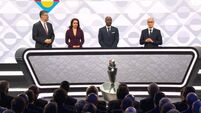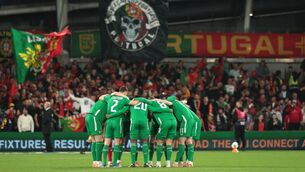Will the feel-good factor last for Ireland?

Such was the level of euphoria created by that win over Italy that even staff members stepped forward to join players in delivering a ditty from their repertoire, aware that rare nights like these are to be cherished.
Four days later and Ireland were out of the European Championships, their physical and mental exertions in Lyon ruthlessly exposed by France during a devastating 25-minute spell after half-time.














